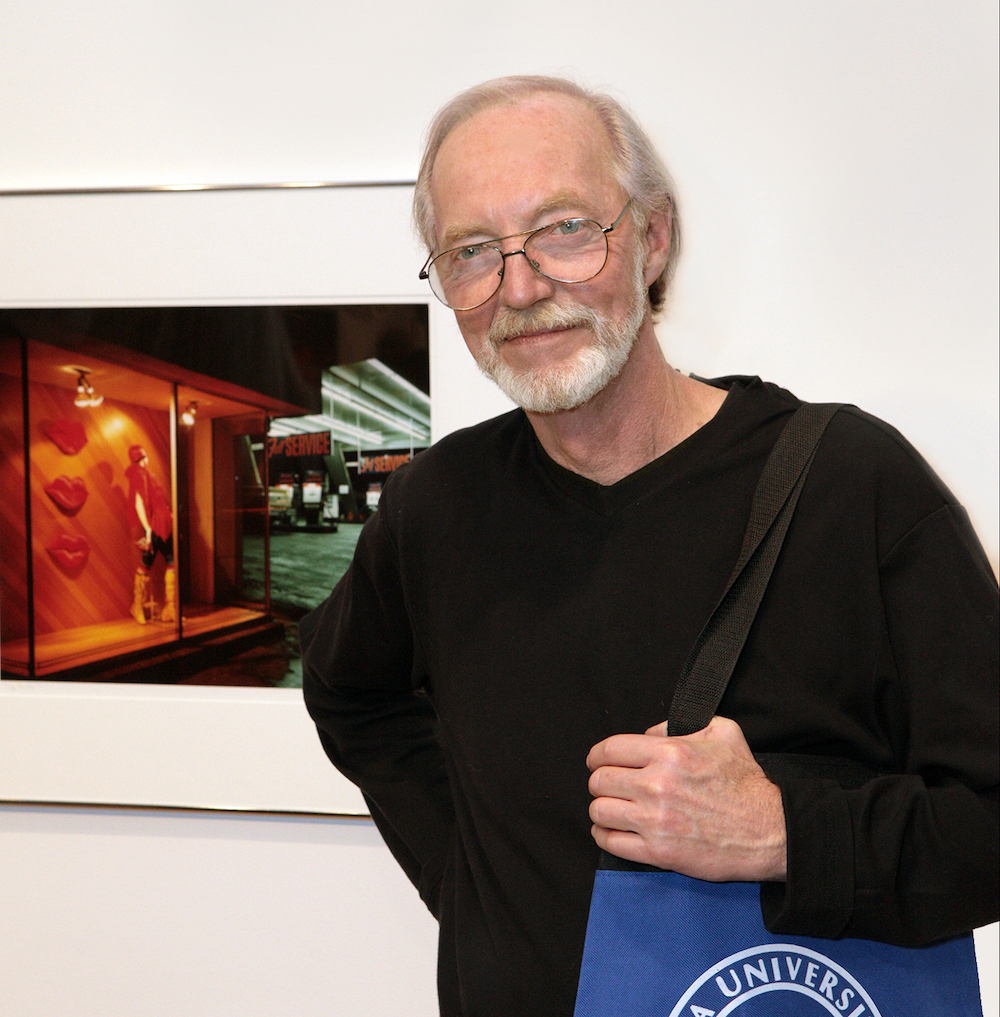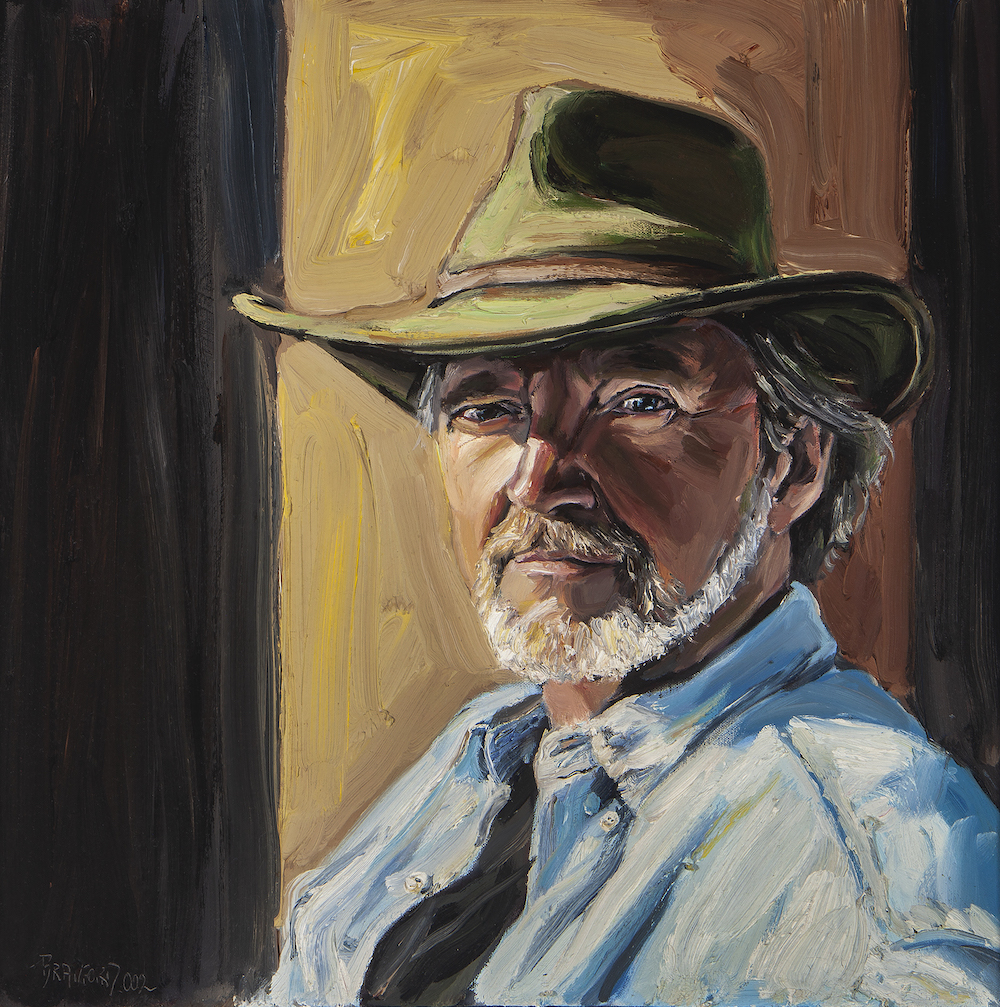I met Mark Chamberlain in March 2003, a few days after the onset of the Iraq War. I visited a gallery in Laguna Beach to write a review of his recent work chronicling the potential horrors of that war. Mark had been mounting politically charged installations for decades. I also learned that he made his living as a fine-art photographer, and that he often brought environmental perspectives into his work.
A tall slender blue-eyed blonde with longish hair, Mark was dressed casually in a frayed work shirt and sandals. His elegant manners revealed his patrician lineage. He had a profound knowledge of history and politics and possessed a razor-like focus on saving the world.
While I admired Mark’s demeanor and insights, I was more enamored with his efforts to save Laguna Beach from rampant development. His confidence and ability to accomplish daunting tasks became the magnet drawing me to him.
We became fast friends based on our mutual interests in art, politics and popular culture. Our complementary professions—he an artist/curator, myself an art and culture writer—became the undercurrent of our relationship. As a couple, we began attending art shows and openings throughout Southern California, all the while seeking advice from each other about our own work.
I moved into Mark’s Laguna Beach home in 2010 and spent several years there with him. We shared meals, watched historical programs on TV, and discussed political, social and personal events. Mark told me stories about growing up in Dubuque, Iowa, exploring the area’s topography and riding boats on the Mississippi River. I shared my memories of a Jewish childhood in the suburbs of Manhattan. We went on the road and spent a week touring his hometown of Dubuque, staying in his houseboat on the shores of the Mississippi.

Liz Goldner & Mark Chamberlain, Main Beach, Laguna Demonstration
We edited each other’s writings and began collaborating on curatorial and journalistic projects. These included a book about his Laguna Canyon Project, an art concept that helped save Laguna Beach from suburban development in the 1980s. As we collaborated, we often struggled with—though eventually resolved—our differing opinions about words, phrases, descriptions and intent.
An unfortunate aspect of Mark’s confidence was his belief in his indestructibility. This attitude often drove him to stretch his body beyond its capacity, spending six weeks every summer laboring on his Mississippi houseboat. He also smoked, stubbornly insisting that the habit would not damage his body.
This lifestyle eventually caught up with him. He returned home from a grueling Mississippi trip in August 2016 with a heart infection. Soon after, he developed atrial fibrillation. While receiving numerous treatments for this condition, he continued to work intensely, and smoke.
In December 2017, Mark felt pain in his lungs and had difficulty breathing. He was told that he had terminal lung cancer. He accepted this diagnosis with quiet resignation.
For the next several months, Mark’s breathing was aided by oxygen 24/7. In March 2018, after receiving immunotherapy, his cancerous tumor broke up, filling his lungs, making breathing more difficult. He went back to the hospital where he spent his final six weeks. The book we completed earlier that year was finally published, which brightened his outlook.

Mark Chamberlain at Soka University exhibition
In late April, I told Mark how much I appreciated him and how I had evolved creatively during our relationship. He responded by talking about the Pygmalion parable, in which a sculptor brings a statue he has created to life. Through his influence and encouragement, I had grown in my life, relationships and work.
Mark passed away on April 23, 2018. An artist friend later told me, “It is a gift when art can create connections with human emotions and interactions.” In fact our mutual love for art and humanity, our shared passions and the larger world had become the glue in our relationship.
Mark’s mission to save his community through his art and empathy for others were so profound that three years after his passing I still feel his presence in the expansive Laguna Canyon, which he fought so valiantly to save. His magnanimous Pygmalion-like nature continues to nurture my heart, mind and soul.


